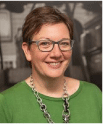Engineering Poster E10: Carbon capture clusters
Helen Riordan A *A Worley, Level 14, 240 St Georges Terrace, Perth, WA 6000, Australia.
The APPEA Journal 62 - https://doi.org/10.1071/AJ21422
Published: 3 June 2022
Abstract
Poster E10
Net zero is an endeavour that will impact every corner of the world. We need global communication and collaboration. To move fast, the transition must become more efficient and spread the best solutions far and wide. For difficult to decarbonise industries, collaboration is essential. The other essential ingredient is policy. The UK banned diesel and petrol car sales from 2030. This is driving electric vehicle manufacturing and supply chains. The EU banned single-use plastics from 2021. Consequently, Coca Cola Europe announced 100% of their bottles would be based on recycled plastic. Norway introduced a carbon tax in 1991 to encourage research into low-carbon solutions. It became the first country to geologically sequester CO2 and the first to do it from an LNG facility. Ten years after the tax was introduced, Norway’s carbon emissions had dropped by 14%. Policies influence emissions. They drive not only environmental outcomes but also sustainable growth and the ability to future-proof their economies. In 2007 and 2012, the UK announced funding for a commercial-scale carbon capture and storage project, both times the programs were aborted. A third attempt, this time focussing on decarbonising four industrial clusters by 2030, was announced in 2018 along with the first ‘net-zero’ carbon cluster by 2040, with the support of a number of UK policies it is expected to progress to construction. This paper discusses the journey from policy through partnerships to the development of Carbon Capture and Hydrogen Clusters in the UK and looks at lessons learnt for Australia.
To access the poster click the link on the right. To read the full paper click here
Keywords: Australia, carbon capture, carbon farming, CBAM, CCS, clusters, CO2, collaboration, decarbonise, desalination, electrification, emission reduction, fuel switching, hubs, hydrogen, industry, infrastructure, LNG, low carbon, mission-oriented innovation and Mariana Mazzucato, net zero, policy, UK clusters, ultra-low-cost solar.

Helen Riordan is a professional engineer with a BSc (Hons) in Process Technology. She has over 25 years’ oil and gas experience. Helen’s role involves developing sustainable business for Worley as industry faces some of the most profound challenges in history. Helen is focussed on striving to develop leaner, more efficient and socially responsible industries. This will be required, both in terms of project execution and operation which is driving a technical revolution, and driving higher levels of artificial intelligence and automation with remote operation and management. Helen works with clients to understand these challenges before working with her own business to work out how we can meet them. Helen’s strength lies in her strong inter-personal skills with multicultural teams and her ability to draw a team together to meet a common goal. Helen’s background is in development planning, FEED, and Detailed Design for Greenfield and Brownfield offshore projects and Operations. |


